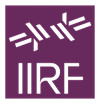COVID-19 and Korea
Viral xenophobia through a legal lens
DOI:
https://doi.org/10.59484/GIEG5107Keywords:
South Korea, Shincheonji, human rights, rule of law, courts, COVID-19Abstract
Although South Korea’s response to COVID-19 has been praised as efficient, effective, and well-planned, the legislation devised to tackle the pandemic suffered from a lack of human rights safeguards and was rather opportunistically employed by the government to target an unpopular religious community. In such situations, it falls to the courts to provide protection to those who may have suffered as a result of state excesses. The trial of Chairman Lee Man-hee of the Shincheonji Church of Jesus places these issues in sharp relief. Chairman Lee’s prosecution is instructive regarding applications of the rule of law in situations of national emergency, freedom of religion, and the inadequacy of traditional legal remedies for certain human rights violations.
Downloads
Published
Issue
Section
License
Copyright (c) 2023 Creative Commons Attribution 4.0 International (CC BY 4.0)

This work is licensed under a Creative Commons Attribution 4.0 International License.
Creative Commons Attribution 4.0 International (CC BY 4.0)





 The International Journal for Religious Freedom (IJRF) is an international peer-reviewed journal published by
The International Journal for Religious Freedom (IJRF) is an international peer-reviewed journal published by 